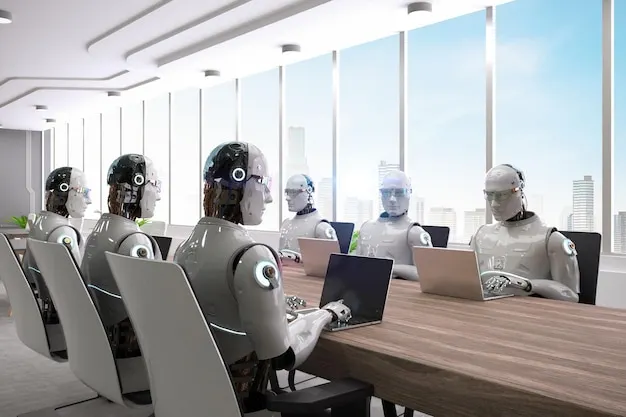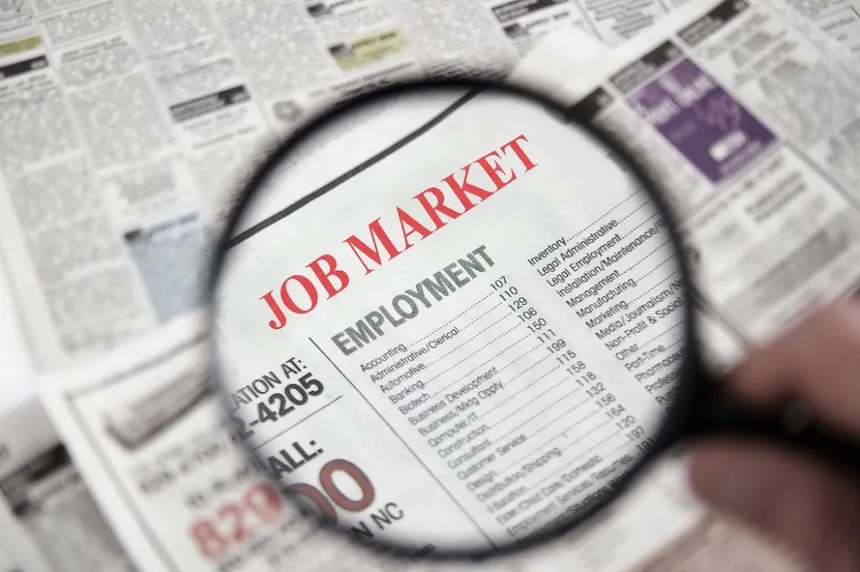The Rise of AI in Job Recruitment
In today’s fast-paced job market, companies are turning to artificial intelligence (AI) to speed up the hiring process. AI-powered recruitment tools promise to identify top candidates, reduce human effort, and eliminate bias. However, concerns over fairness, transparency, and potential discrimination have sparked a heated ethical debate.
What Are AI-Powered Recruitment Tools?
AI recruitment tools use algorithms and machine learning to analyze job applications, conduct video interviews, and even predict candidate success. These tools screen resumes, evaluate language patterns, and rank applicants based on predefined criteria.

Popular AI Hiring Tools
- HireVue: Uses AI-driven video analysis to assess candidates’ verbal and facial expressions.
- Pymetrics: Uses neuroscience-based games to evaluate candidates’ personality and cognitive skills.
- LinkedIn Recruiter: Uses AI to match job seekers with employers based on their profiles and job preferences.
- Chatbots and Automated Resume Screeners: AI tools that sort resumes based on keywords, job descriptions, and skills.
The Benefits of AI in Hiring
1. Faster Recruitment Process
- AI tools process thousands of applications in seconds.
- Reduces the workload for HR teams and speeds up hiring decisions.
2. Cost-Effective Hiring
- Eliminates the need for extensive manual screening.
- Saves companies money by reducing recruitment time and HR efforts.
3. Data-Driven Decisions
- AI evaluates candidates based on skills, experience, and qualifications.
- Helps employers make more informed hiring decisions.
4. Reducing Unconscious Bias
- AI systems aim to remove human prejudices from the hiring process.
- Focuses on objective criteria rather than subjective impressions.

The Ethical Concerns and Risks
1. Algorithmic Bias and Discrimination
- AI models are trained on past hiring data, which may reflect existing biases.
- Example: Amazon’s AI hiring tool was found to favor male candidates over females.
- Biased AI may unintentionally discriminate based on gender, race, or age.
2. Lack of Transparency
- Many AI hiring tools operate as “black boxes,” making it difficult to understand how decisions are made.
- Candidates may be rejected without knowing why or how to improve their chances.
3. Over-Reliance on AI Over Human Judgment
- AI cannot assess soft skills like creativity, leadership, or emotional intelligence as effectively as humans.
- Employers risk missing out on talented candidates who do not fit rigid AI parameters.
4. Data Privacy and Security Issues
- AI hiring tools collect vast amounts of personal data, raising concerns about security breaches.
- Misuse of candidate data could lead to privacy violations.

Government Regulations and Ethical Guidelines
1. Legal Actions and Laws
- The European Union’s AI Act aims to regulate AI tools used in recruitment.
- The U.S. Equal Employment Opportunity Commission (EEOC) is investigating AI-driven hiring bias.
- Several states are introducing laws requiring AI hiring tools to be audited for fairness.
2. Ethical AI Principles for Fair Hiring
- Companies should ensure AI tools are regularly audited for bias.
- Transparency in AI decision-making should be a priority.
- Employers should use AI as a supporting tool, not a sole decision-maker.
The Future of AI in Recruitment
1. Improving AI Fairness
- AI developers are working on creating bias-free recruitment algorithms.
- Future AI hiring tools may incorporate more diverse training data to reduce bias.
2. AI and Human Collaboration
- The best approach may be a hybrid system where AI assists recruiters but final decisions are made by humans.
- AI can streamline hiring, but human intuition remains critical in evaluating candidates.

Conclusion: Striking the Right Balance
AI-powered recruitment tools have the potential to transform hiring, making it faster, more efficient, and data-driven. However, ethical concerns surrounding bias, transparency, and privacy must be addressed. Companies must use AI responsibly, ensuring fairness and accountability while still valuing human judgment in hiring decisions.
As AI continues to evolve, striking a balance between automation and ethical recruitment practices will be key to building a diverse and inclusive workforce.
Ukraine and US in Final Stages of Landmark Mineral Deal: A New Era for Global Trade?






